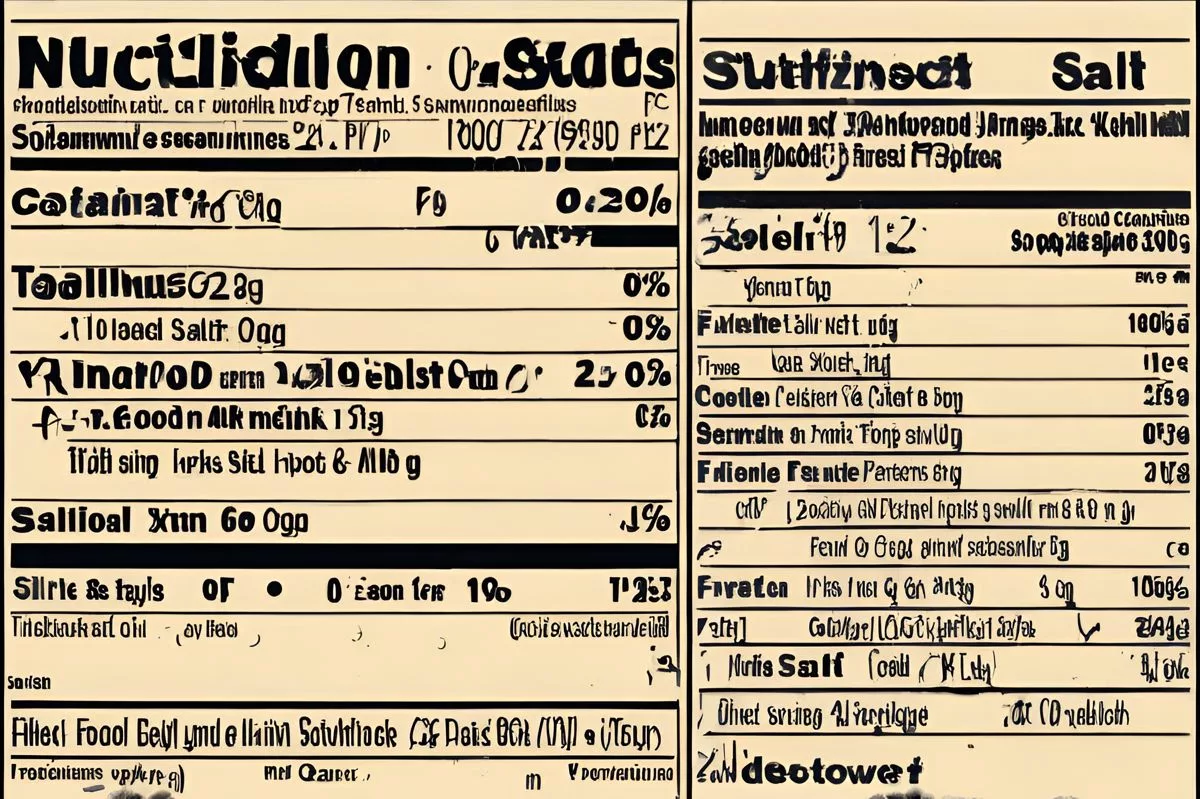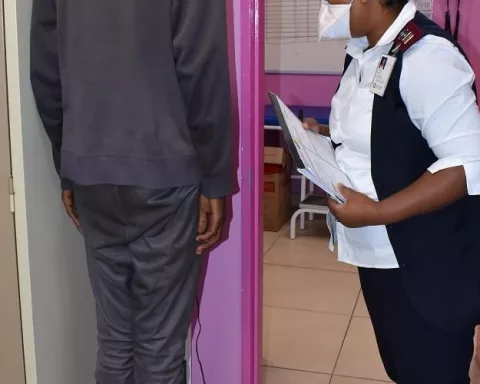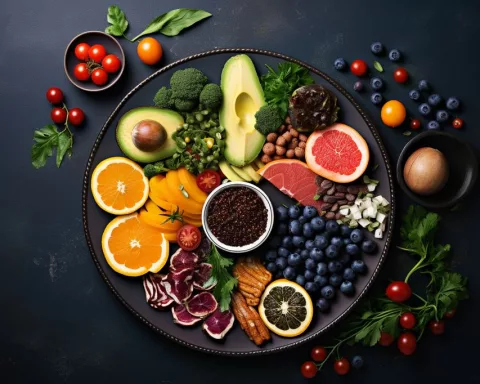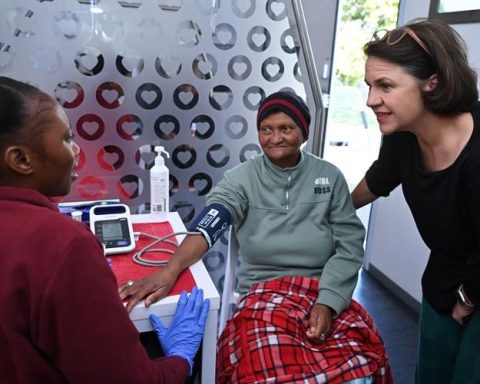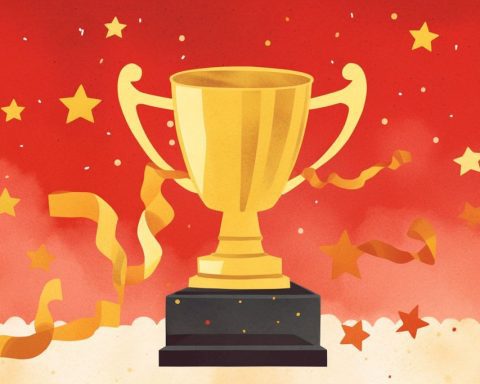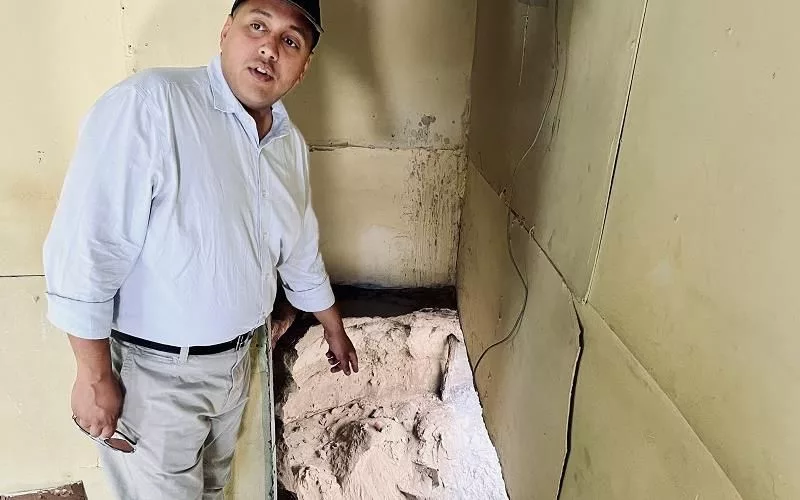Consuming too much salt can lead to serious health issues like hypertension, heart diseases, and strokes. In Cape Town, high salt intake is linked to an increase in non-communicable diseases. The World Health Organization recommends a daily salt consumption limit of no more than five grams. It’s important to check food labels and find healthier alternatives for seasoning food to promote better health and prevent diseases.
What are the health risks of consuming too much salt?
Excessive salt intake can lead to serious health issues such as hypertension, heart diseases, and strokes. In Cape Town, high prevalence of non-communicable maladies such as hypertension is attributed to excess intake of salt. The World Health Organization suggests a daily salt consumption limit of no more than five grams. It’s crucial to actively check food labels to comprehend the salt content in everyday items and make healthier food decisions. Councillor Patricia Van der Ross urges us to explore better alternatives for seasoning our food that uphold our health and mitigate disease prevalence in our city.
From March 14 to 20, health enthusiasts and organizations globally commemorate Salt Awareness Week. This worldwide drive is designed to inform the populace about health hazards tied to high salt intake, a dietary blunder known to trigger serious health issues such as hypertension, heart diseases, and strokes.
Health Risks Related to Salt in Cape Town
In Cape Town, the significance of Salt Awareness Week becomes more pronounced due to the city’s high prevalence of non-communicable maladies such as hypertension and diabetes. The city’s health reports reveal a disturbing increase in hypertension cases. An almost 4,000 new hypertension diagnoses were recorded in the city’s clinics from April 2022 to March 2023. Even more concerning, nearly half of these patients were under the age of 45.
Salt, commonly labeled as sodium on food packaging, is the main instigator of this escalating health issue. It’s pertinent to note that an excess of salt not only triggers hypertension but also can aggravate pre-existing cases, boosting the chances of strokes. The World Health Organization (WHO) suggests a daily salt consumption limit of no more than five grams, which is approximately one teaspoon or 2,000 mg of sodium.
The Hidden Salt in Everyday Foods
Undeniably, the use of salt and other seasonings can amplify the taste of dishes. However, the price we pay for this flavor enhancement shouldn’t be our health. It’s vital to remember that our salt intake doesn’t solely stem from the salt we add while cooking or at the table. Numerous daily-use products including spices, bread, cereal, and even the sauces we use contain salt. As a result, it’s crucial for us to actively check food labels to comprehend the salt content in these items and make healthier food decisions.
Councillor Patricia Van der Ross, the Mayoral Committee Member for Community Services and Health, urges us to explore better alternatives for seasoning our food that uphold our health and mitigate disease prevalence in our city.
As per the Heart and Stroke Foundation of South Africa, salt is commonly included in packaged and processed foods to enhance taste, texture, and shelf life. Interestingly, foods that don’t necessarily taste salty could still have a high salt content.
Making Informed Choices and Sustainable Solutions
In light of this, the foundation recommends consumers to compare similar products or different brands to select foods lower in sodium. If the nutritional information isn’t clearly displayed on a product, consumers should refer to the ingredients list to look for added salt or other forms of sodium.
The foundation also suggests using herbs, unsalted spices, garlic, ginger, lemon, and vinegar as flavoring alternatives. Furthermore, they advise limiting the consumption of highly salty foods such as takeaways, soup powder, polony, sauces, and salty spreads. They also advocate tasting food before adding salt and removing the salt shaker from the dining table during meals.
For individuals seeking more detailed guidance on decreasing salt intake, City Health facilities and the city’s website provide valuable resources and advice.
The Changing Narrative Around Salt
Clearly, the discourse around salt consumption needs to evolve. The focus shouldn’t be on completely omitting salt from our diets, but rather on being aware of its hidden sources and potential health repercussions. We need to strike a balance between the gastronomic pleasure that salt brings and the health hazards it can cause. After all, every grain of salt can make a difference in our health!
What is Salt Awareness Week?
Salt Awareness Week is a global initiative that aims to inform people about the health risks associated with high salt intake. This week-long event is observed by health enthusiasts and organizations worldwide from March 14 to 20.
How is excessive salt intake linked to health risks in Cape Town?
In Cape Town, high salt intake is associated with an increase in non-communicable diseases such as hypertension and diabetes. Reports indicate an alarming rise in hypertension cases, with almost 4,000 new diagnoses recorded in the city’s clinics from April 2022 to March 2023. About half of these patients were under the age of 45. Excess salt intake is a significant contributor to this health issue.
What is the recommended daily salt consumption limit?
The World Health Organization recommends a daily salt consumption limit of no more than five grams, which is equivalent to approximately one teaspoon or 2,000 mg of sodium.
What are some hidden sources of salt in everyday foods?
Salt is not limited to the salt we add to our food while cooking or at the table. Numerous food products such as spices, bread, cereal, and sauces contain salt. It’s essential to check food labels to comprehend the salt content in these items and make healthier food choices.
What are some healthier alternatives to seasoning food?
Herbs, unsalted spices, garlic, ginger, lemon, and vinegar are excellent flavoring alternatives to salt. Limiting the consumption of highly salty foods such as takeaways, soup powder, polony, sauces, and salty spreads is also advisable. Removing the salt shaker from the dining table during meals and tasting food before adding salt are some other suggestions.
What resources are available for individuals seeking guidance on reducing salt intake?
City Health facilities and the city’s website provide valuable resources and advice for individuals seeking more detailed guidance on decreasing salt intake. The Heart and Stroke Foundation of South Africa also recommends comparing similar products or different brands to select foods lower in sodium if the nutritional information isn’t clearly displayed on a product.

